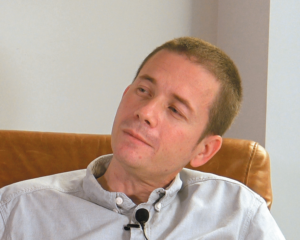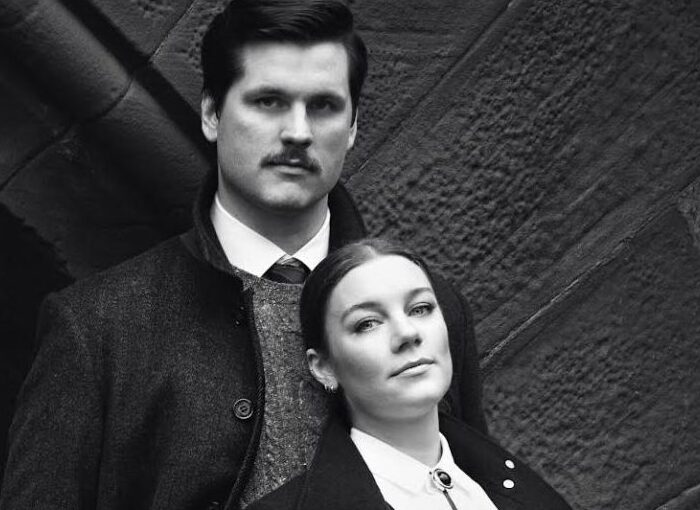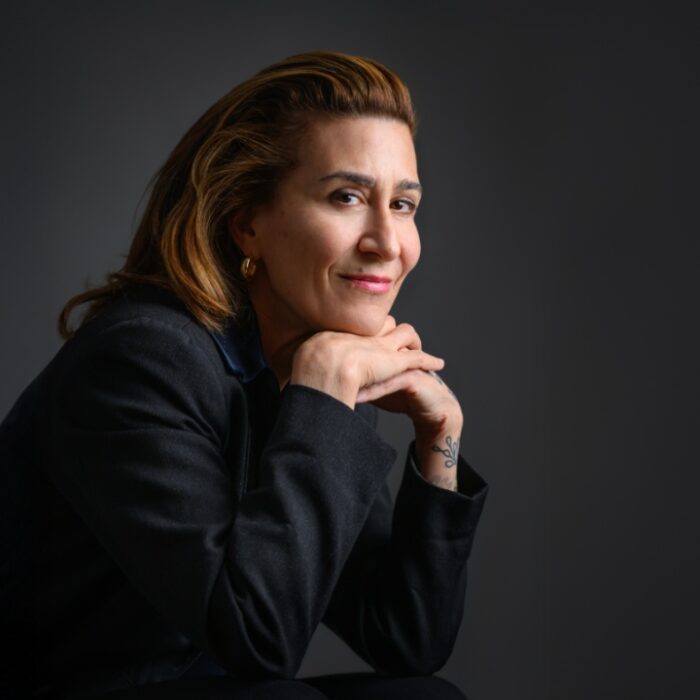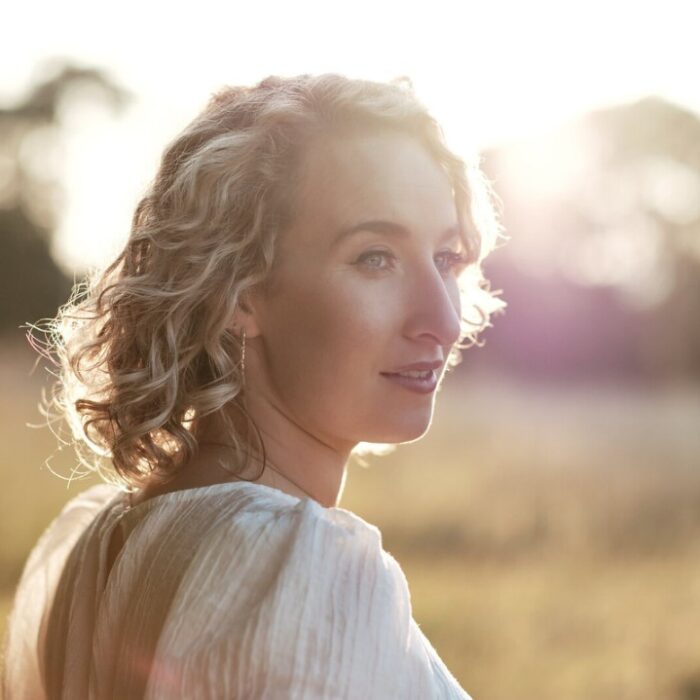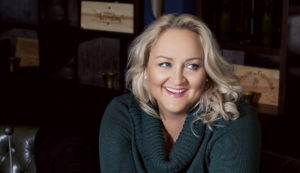
Q & A: Elisabeth Teige on Finding Balance As A Dramatic Soprano, Her Family Life & Greatest Inspirations
By Dejan Vukosavljevic(Credits: Patricia Varela)
Young Norwegian soprano Elisabeth Teige has established herself as one of the most sought-after dramatic sopranos of her generation. She has appeared in the number of dramatic roles including Senta in “Der Fliegende Holländer,” Leonore in “Fidelio,” Cio-Cio-San in “Madama Butterfly,” Irene Wagner’s “Rienzi, der Letzte der Tribunen,” Elsa in “Lohengrin,” and the title character of Puccini’s “Turandot” with such companies as the Deutsche Oper Berlin, Den Norske Opera, Nationaltheater Mannheim, Semperoper Dresden, Oper Frankfurt, Staatsoper Hamburg, National Theatre Prague – State Operahouse, and Theater Lübeck, among others. She has also taken part at the Beijing Music Festival in 2017, singing the role of Helmwige in “Die Walküre”.
Teige’s career has started to blossom in 2019, with two major debuts at the Deutsche Oper Berlin and an invitation to the Bayreuth Festival in the summer of 2020.
The Norwegian soprano recently spoke to OperaWire about her career development and aspirations for the future.
OperaWire: What was your first contact with the huge world of classical music?
Elisabeth Teige: That happened quite late. I always loved to sing, but I had no idea that opera even existed. I went to a music high school from the age of 17, but there I sang pop, jazz and folk music. I had a teacher who immediately heard that I had a classical tone, but I didn’t care. I was totally uninterested. That same teacher was also the leader of a local choir, Aalesund Operakor, and she persuaded me to come to a rehearsal and take a look. I did, and I actually really liked it! I was set to sing second soprano and we sang chorus pieces from “Carmen,” “Tannhäuser,” “Aida,” and “Nabucco.” I loved it!
After a couple of years we had a visit from The Norwegian National Opera (DNO) who was on tour with “Les contes d’Hoffmann.” They had a soprano with them who sang all of the soprano roles. I couldn’t believe it. I was immediately blown away! That was the moment when I understood that I wanted to sing in the opera. Just like her! So I said to myself that if I ever got to study at the Opera Academy, I was going to call this lady and ask her if she would like to teach me. And so I did, five years later. She had never coached anyone before, but wanted to give it a try. Today she is a respected, and a quite busy professor of singing here in Norway!
OW: Who are your favorite singers?
ET: I try not to have any hang ups on other singers. Over the years I have learned how to listen to singers without copying them.
Years back I think I tried to make their sound. Now I definitely have found my own sound, and am confident with it. But I love Nilsson’s Brünnhilde because it is so clear and fresh; Freni’s Madama Butterfly because of the golden sound; Normann’s “”Vier Letzte Lieder” because of the incredible musicality and organic nature of her interpretation.
I have never been afraid of listening to the great divas of the past, but it is so important as a singer to trust your own instinct and unique sound. And just enjoy the music that you choose to listen to, no matter what it is.
OW: What are the keys to success in this profession?
ET: I think a good basic mental health is one of the main keys to be able to be happy in this profession. We sacrifice a lot by being away from our families and not having the “normal life.” But then again, what is normal? I always look forward going back to work. I don’t have hang ups or a special routine that I have to do before the performance, but I always try to sleep as long as I can and eat what I want these days. It’s important to not keep yourself on a leash.
I also have a personal trainer at the gym whom I see two times a week. She pushes me to my very edge every time. It hurts so bad, but it feels great after! I started with the trainer this year, and I have never looked back. I have never felt stronger than I do today. When all this is said, I try to (and I think I am getting better at it) listen to what my mind and body tells me. A strong body is important, but if your mental health strikes – that can be critical.
OW: Having a family is a big responsibility. How do you fit roles of a mother and professional opera singer?
ET: I always believed that it was possible to have it all. I married the man of my dreams, and I wanted children. I just didn’t know when it would fit into my schedule. And the thing is, it’s never the right time. Not in our profession.
If you are a sought-after singer, either way you lose a job. My case was the role of Lisa in “Pique Dame” in Oslo. I was so happy about being pregnant, but I was also sad about withdrawing from this production. I had been looking forward to it for a couple of years. But this is just how it is. You win some, you lose some. In my opinion I won the JackPot! Borgar came late September 2018 and he is pure joy! How was life before him, I cannot remember!
I had no idea how challenging it would be to combine these two worlds, though. The planning and constant search for solutions is one thing, but to leave him behind if only for two, three nights is awful. I am so lucky I have a patient and loving father to my son. I also have a fantastic mother and in-laws that step in. I couldn’t do this without them. Good help is completely necessary.
To be a singing mama is a lot of planning and overthinking, there is no way to deny that, but I wouldn’t go back for anything in the world!
OW: Many dramatic sopranos come from Scandinavian countries. Why do you think that is the case?
ET: We have a lyrical vocal ideal, and Grand Opera is not really a big thing in Scandinavia. Most students of classical singing start out with early music/oratorio, Mozart, or lyrical art songs, and even though many of us end up singing far bigger material, this is not something we’re pushed into. I actually think it’s more common to be discouraged from moving into the bigger stuff than the other way around.
We also rarely put much emphasis on rigid notions of Fach, but treat each individual voice separately. I, for one, am convinced my Tosca improves my Leonore, and my Senta improves my Cio-Cio-san, and vice versa. A good voice is a good voice, and should have the flexibility to switch between different operatic repertoire without too much difficulty. This ideal might help us maintain the healthy, flexible voices we need to perform well in the heavier roles, as we are able to sing them rather than shout them.
Maybe we’re just bigger than the Italians, I don’t know.

(Credit: Jochen Quast)
OW: Let’s talk about your repertoire. Which of the roles that you have interpreted do you identify with most?
ET: I can relate to almost all of them. Cio-Cio-San is the teenager who is determined and dreams big. Senta is the young woman with the imagination, but she also acts on her intuition. Tosca loves, and she is jealous. We have all been jealous. We have all been teenagers and let our imagination run wild. Fidelio’s Leonore goes out of her way to rescue her loved one.
The most human of them might be Butterfly. It is an opera with real people and real human relations, dreams and feelings. That very reason is why this opera is so incredibly sad. People that don’t know the opera genre that well may think that the plots are just crazy stories and over the top gibberish but many of these stories are actually quite accurate.
OW: Regarding the role of Tosca, how do you shift between her emotions of deep sorrow, angst and rage, in order to portray her credibly onstage?
ET: For me, it’s not the emotional shifts between her emotions of sorrow, angst and rage that are the most compelling to explore. I find her transition from being a young, carefree girl in love to suddenly stand face to face with sexual and murderous evil a far more profound shift. I think her extreme emotions must always be mirrored by who she recently was.
So, when portraying Tosca’s rage and sorrow, I place large emphasis on the fact that this is all new to her. She experiences these emotions for the first time, and has no way of handling, or even recognizing, the feelings surging through her. Her tragic end comes, for me, as a direct result of this.
OW: Senta in “Der Fliegende Holländer” is a role where redemption through love plays a central part. You have performed this role several times very successfully. What was your approach?
ET: Like with most singers, my initial approach was vocal. Can I sing this? With that out of the way, the next step for me was to delve deeper into the text and music, identifying which textual and musical passages that most immediately struck me. In my case, these were the more lyrical parts of the ballad (the end of each verse) and the beginning of the duet, as well as the final tersetto. Then, I “connected the dots,” so to speak, to create my own, personal interpretation of who Senta is.
That way, I could more easily create a character which resonates with me personally and thus portray Senta’s journey (or voyage, perhaps?) in a highly organic, honest and direct way. I could use my own instincts, thoughts and emotions to guide me through the process.
OW: In April 2019 you debuted in the role of Irene in Wagner’s opera “Rienzi” at the Deutsche Oper Berlin. Who is Irene?
ET: She is a devoted woman that loves her brother unconditionally. They have grown up together, and made a world of their own. Rienzi is always the leader, but she doesn’t mind. She follows him to the end, as a fearless and proud sister.
Actually I had a special experience in Berlin doing this role. I woke up the morning of the performance with no voice. It was the weirdest situation, and had never happened to me before. I told my agency, they informed the opera house, and soon they already had a colleague of mine on the train to Berlin to sing the role.
But since “Rienzi” has been performed so rarely, almost no one knows it by heart. So I had to act the part, while soprano Camila Ribero-Souza was singing the role from the side of the stage. I asked the assistant director what they expected of me on that evening. He said that I should just act everything out and mime the words. So I mimed like there was no tomorrow! It was a new experience, so to speak.
OW: You just noted that “Butterfly” is the “most human” of the operas you perform. How do you find inner emotional support to believably portray this tragic character of Cio-Cio-San onstage?
ET: I have the tendency to go all in to the characters I play. I look at myself as a singer that sings more with the heart, rather than the brain, and it can be hard sometimes. It can be especially a “problem” when it comes to singing Cio-Cio-San. The character has so much hope and dreams throughout the opera, and in the end she has nothing left. The moment they mention that it would be better for the child to go to America, she decides to kill her self. If she was not going, he certainly could! But then she must disappear. It can easily get very sentimental and the audience doesn’t need that. The music of Puccini and the story is sad enough. This is why I find it important not to “sing the tragedy” and rather keep her strong and determined for as long as possible in those final scenes. I am a bit of a mess for hours after the performance. It takes a while to get your smile back on, I can tell you.
My son is now closer to Sorrow’s age, and I am very curious about how it’s going to go in the final scenes, when I perform here in Oslo in January. Will I be able to keep my personal feelings back? But I also believe that because I go to the external limits of my emotions, I have to turn it all off again and not linger too long in the black mind of Cio-Cio-San. And rather go back to being Elisabeth, loved wife and mother.
OW: Let’s shift to the opposite extreme. You debuted in the title role of “Turandot” in October 2019. In which ways did you relate to the character?
ET: Princess Turandot is a role of extreme character. She lacks a number of normal human qualities such as empathy, guilty or remorse. I can not say that I immediately relate to her as a person, but I can definitely see that she has some sort of a father issue. And that he disappoints her. Can he really treat her, his only daughter, like this? Wasn’t it them against the rest of the world? Or maybe not? Definitely a role that is hard to feel too connected to, and maybe in this case that is not so bad. But I love singing the part, and I can’t wait to portray her again!
OW: Looking ahead, you will be taking on the role of Gutrune at the Bayreuth Festival 2020 in the final opera of Wagner’s “Der Ring Des Nibelungen.” What are you looking forward to with this experience?
ET: This will be my Bayreuth debut, and first of all, I’m really looking forward to be a part of such an iconic festival, and to sing on a such a legendary stage.
When it comes to the specific part of Gutrune, I think her name says a lot about her. Her name in old Norse means “secret battle,” and to me, that’s what defines her the most. She’s trying to make a way for herself in a rigid, masculine society, without really having a voice of her own. She’s forced to scheme from the shadows, and cannot pursue her goals openly. Still, her battle is just as much internal as it is external, as she’s struggling with guilt and conflicting emotions concerning Siegfried.
That being said, she’s also doomed to being a cog in the wheel of her brothers’s plans, and has little or no real impact on the unfolding of events around her. Her world is little, compared to the epic, world-ending plot of this final Ring-installation, but that’s all she knows.
OW: What are some of your other future plans?
ET: My goal is to always find a role or a job that develops me in the right and healthy direction. But it’s not always easy to know what is the best path or choice. I always like to take chances, though. Some people were surprised about my “early” debut as Turandot, but I would never do it if I didn’t feel comfortable or safe.
I like to see myself as an independent singer. I always follow my gut, and it has (so far) gone quite well. I changed agents two times in three years due to various reasons, and in 2017 I had only one signed contract in my calendar and I was without agent for six months before I met my current agent. It was a bit nerve-wrecking, but it was the only way for me at the time. It was better to be without an agent for a while. Future roles for me include a lot of “Fidelio,” a brand new Senta, my Sieglinde debut, my first “Siegfried” Brünnhilde (in concert), more “Turandot” and “Tosca.” And of course my debut at the Bayreuther Festspiele!
